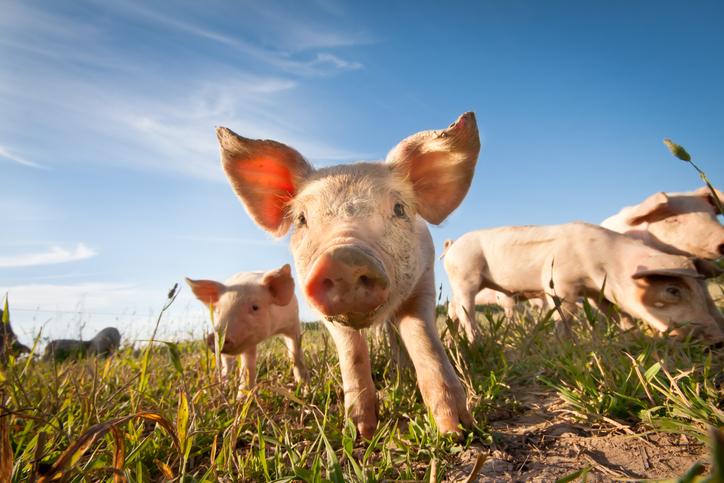The risk of entry of African Swine Fever (ASF) is real and protecting ourselves from its arrival is a task that involves everyone. That is the main conclusion of the webinar organized by the Interprofesional del Porcino de Capa Blanca (INTERPORC), which was a complete success and had more than 250 attendees from both Spain and LATAM.

Alberto Herranz, director of the Interprofessional, framed the webinar in the “frequent training and prevention actions against the ASF that we carry out at INTERPORC”. In addition, he recalled that “we actively participate in the PREVPA Operational Group to establish measures that reduce the risk associated with wild boars and we have a PRRS virus study and prevention project, in order to evaluate its evolution and thus improve biosecurity measures , essential for any disease”.
In addition, Herranz reiterated the central message of the webinar: “the success of remaining free of African Swine Fever is a task for each one of us.”
The webinar emphasized that the impact of the ASF would have serious consequences for the sector, which is why all its professionals must remain on active alert. It must not be forgotten either that the characteristics of the ASF virus make its control and eradication very difficult; that the human factor has a growing role in the latest cases of dissemination of ASF in Europe; that biosecurity is the main and essential tool to protect ourselves from the virus; and that hygiene, cleaning and disinfection of vehicles and control of animals and merchandise are critical elements.
The characteristics of the ASF virus make its control and eradication very difficult; the human factor has a growing role in the latest cases of dissemination of ASF in Europe; biosecurity is the main and essential tool to protect ourselves from the virus; hygiene, cleaning and disinfection of vehicles and control of animals and merchandise are critical elements
Prevention and consequences
Jordi Baliellas, INTERPORC coordinator of some projects in the Animal Health area and GSP Lleida veterinarian, recalled that “the three critical points and possible routes of entry for the ASF in Spain are the importation of pigs or the arrival of infected wild boars; ingestion by animals of contaminated meat products; or contact with contaminated material. And he exposed specific cases of contamination that had occurred in other European countries of each of these three possibilities.
Jordi Baliellas, INTERPORC: “The three critical points and possible routes of entry of the ASF into Spain are the importation of pigs or the arrival of infected wild boar; the ingestion by the animals of contaminated meat products; or contact with contaminated material “
For his part, Germán Cáceres, head of the Epidemiology area of the General Sub-Directorate for Animal Health and Hygiene and Traceability of the Ministry of Agriculture, Fisheries and Food, began by warning that “it is a disease categorized as A in the EU, and that It means that any case must be reported immediately.”
Cáceres pointed out that the EU has managed to stop the spread, unlike in Asia, thanks to the regionalization policy, and concluded by describing the three pillars of risk management in Spain, which are “prevention measures to prevent the entry and diffusion; active and passive surveillance and contingency for a rapid, coordinated and effective response in case of entry of the disease”.
Germán Cánceres, MAPA: “The EU has managed to stop the spread, unlike in Asia, thanks to the regionalization policy”
Lastly, Miguel Ángel Higuera, director of ANPROGAPOR, explained that the declaration of an ASF focus on domestic pigs in a country “has a direct impact due to the slaughter on that farm; indirectly, by immobilization, control and restrictions in other areas; and collateral, for the loss of exports. The latter is the most important and also occurs if the cases occur in wild boars”.
Miguel Ángel Higuera, director of ANPROGAPOR: “The detection of the ASF has a direct impact due to the slaughter on that farm; indirect, due to immobilization, control and restrictions in other areas; and collateral, due to the loss of exports”
















